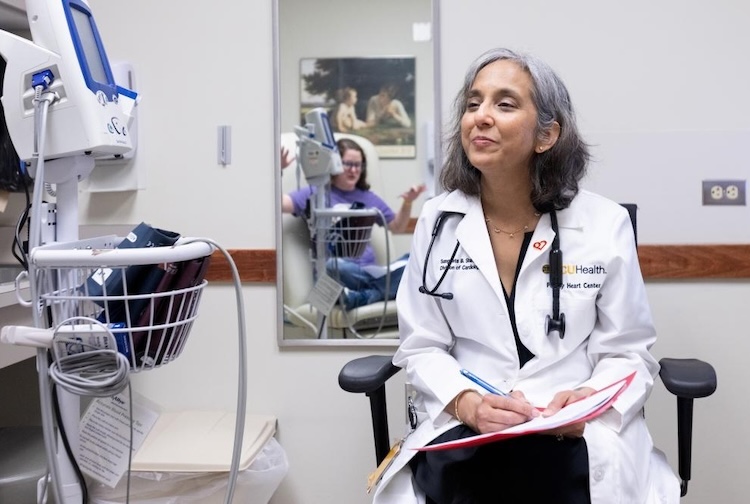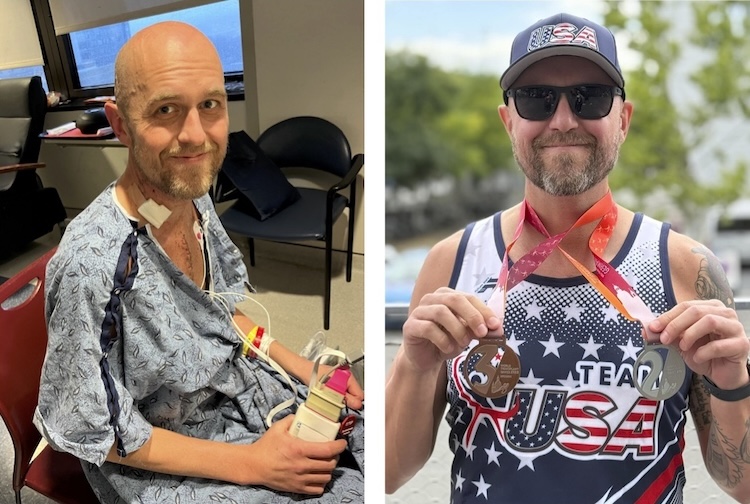Know your risk for heart disease
The heart is not only a fist-sized organ that pumps blood throughout your body, but it is the most important organ in your circulatory system. Here are ways to make sure your heart is in the best condition possible by avoiding heart disease.
February 22, 2023 Sometimes heart disease can develop silently, so VCU Health team members highly recommend you consistently schedule routine appointments with your healthcare provider. (Getty Images)
Sometimes heart disease can develop silently, so VCU Health team members highly recommend you consistently schedule routine appointments with your healthcare provider. (Getty Images)
By Jayla Parker
Heart Disease is a term that refers to the different types of medical conditions that affect the heart and/or blood vessels. It is the leading cause of death for both men and women in the United States.
Heart diseases come in many forms and they each have their own symptoms and treatments. A few examples of common heart diseases include heart attack, congestive heart failure, arrhythmia, and valve disease.
Chest pain, shortness of breath, dizziness, leg swelling, and a fast or uneven heartbeat can all be symptoms of heart disease. But sometimes heart disease can develop silently, meaning that you feel perfectly fine and are still affected. That is why it's highly recommended that you consistently meet with your healthcare provider for routine physical examination and blood work.
“If you think about your cardiovascular health as a financial analogy, making small consistent investments starting today will yield overwhelming returns 30 to 40 years from now,” said Anurag Mehta, M.D., from VCU Health Pauley Heart Center.
We spoke with Mehta, who is a preventive cardiologist, to learn more about risk factors for heart disease and what you can do today to keep your heart healthy.
What risk factors of heart disease can you be born with?
A very important and sizable contribution of your genetics can determine your fate of developing heart disease. DNA and information passed from the father and the mother on to their children, can lead to very high cholesterol levels in the blood called family hypercholesterolemia. It's a common, under diagnosed condition which increases the risk of heart attack and affects approximately one in 250 people.
There are several other risk factors for heart disease, such as children and young adults having high blood pressure is related to the risk of developing heart disease across the lifespan. The prevalence of childhood obesity is also increasing rapidly. Being overweight can increase your chances of developing diabetes. Diabetes is a very strong risk factor for developing both heart attack and heart failure or cardiomyopathy, a disease that makes it harder for the heart's muscle to pump blood to the rest of the body.
How can heart disease be treated?
There are many different ways of treating heart disease, and in order to treat heart disease in a particular patient or a particular person, the first thing is understanding what kind of heart disease they have. This involves you getting an accurate assessment of the symptoms as well as risk factors for heart disease, including family medical history.
A specific treatment for a type of heart disease I see frequently, coronary artery disease, is making significant lifestyle changes. For example, if someone is smoking, then we will recommend they stop since smoking cessation is probably the best thing that someone can do for their health.
For the heart itself, we use targeted medications, such as cholesterol lowering medications and forms of blood thinners which can decrease the chances of having a heart attack. These types of medications would include a daily dose of aspirin.
Is heart disease preventable?
Heart disease is overwhelmingly preventable, and I believe that prevention best starts early in life.
A basic, routine health assessment is the right place to start and is available at any time with our primary care health providers. Based on what we learn from the assessment and tests, we will be able to understand your risk factors and start you on a plan to prevent heart disease.
At the VCU Health Pauley Heart Center, I see a lot of patients who either have heart disease or have a high risk of developing heart disease. We start by checking your cholesterol level, blood pressure, blood sugar level, understanding your family history, and advise you about not smoking, avoiding excessive alcohol use, having a physically active lifestyle, maintaining a healthy weight, and use prescription medications when needed. Our central goal is to promote heart health and prevent the development of heart disease.




